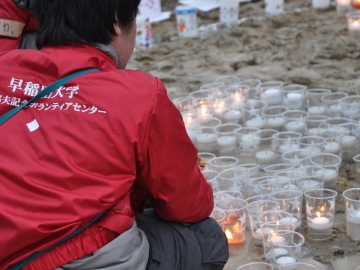Research Theme
Our mission is to improve outcomes for all children, with a particular focus on children in social care. We continue to focus on empirical research and evaluation, practical support, and suggestions for policy formulation. The Research Institute for Children’s Social Care endeavors to go beyond working for children, and always considers ways to connect together with children in order to create new and needed change.
Research Director
KAMIKADO, Kazuhiro
Faculty of Human Sciences, School of Human Sciences
Project Members
- ARAKAWA, Misaki Research Associate, Comprehensive Research Organization
- IWABUCHI, Mamoru Professor, Faculty of Human Sciences, School of Human Sciences
- KAMIKADO, Kazuhiro Professor, Faculty of Human Sciences, School of Human Sciences
- KATSURAGAWA, Taisuke Professor, Faculty of Human Sciences, School of Human Sciences
- KAWAMURA, Akira Professor, Faculty of Human Sciences, School of Human Sciences
- KOYAMA, Shutaro Associate Professor, Faculty of Human Sciences, School of Human Sciences
- MATSUBARA, Yumi Professor, Faculty of Human Sciences, School of Human Sciences
- NASU, Rie Junior Researcher (Assistant Professor), Comprehensive Research Organization
- OKAYASU, Tomoko Associate Professor (non-tenure-track), Faculty of Human Sciences, School of Human Sciences
- TAKO, Emi Research Associate, Faculty of Human Sciences, School of Human Sciences
- AOKI, Yutaka
- AWA, Akiko
- CHODA, Junko
- FUJIBAYASHI, Takeshi
- FUKUI, Mitsuru
- HAKUTA, Yoshihiko
- HATAKEYAMA, Yukako
- HIKITSUCHI, Tatsuo
- KAWANO, Youko
- KUNISAWA, Yuki
- NAKAMURA, Takeshi
- NISHINO, Masafumi
- UEMURA, Kouju Guest Junior Researcher (Guest Assistant Professor), Comprehensive Research Organization
- WANI, Rika
- YAMAGUCHI, Keiko
- YAMAOKA, Yui
- YASUTOME, Akihito
Research Keywords
Child welfare, Children’s Social care, Looked-after children
Research Summary
In 2020, Japan started introducing family-based care to municipalities nationwide. This shift was in line with the global trend towards family-based care, and followed the revision of Japan’s Child Welfare Law of 2016, the New Children’s Social Care Vision
of 2017, and the formulation of the Children’s Social Care Promotion Plan during 2019. Building a children’s social care system based on permanency over the next 10 years comes with great challenges, because until now children’s social care in Japan has
been offered mainly through institutional care. Waseda’s Research Institute for Children’s Social Care is committed to ensuring its success.
The new social care system places the highest priority on family restructuring, including the prevention of family separation, and aims to ensure that children are raised by parents and society together. Japan has taken inspiration from the methods and practices of the de-institutionalisation of the UK as it considers how to develop a children’s social care system that is in line with the government’s new vision for children’s social care (such as making facilities more multifunctional and progressive, and establishing fostering agencies). Our research on children’s social care not only provides an opportunity to shift towards a model similar to the UK, but also provides a means to support subsequent practice. In order to guarantee the best interests for children in care, our goal is for policies and practices to reflect our research, and for practice, research and policy to be closely interlinked.
Waseda Research Institute advocates for both research and evidence-based practice. The principle of prioritization of family-based care is founded on research conducted in various countries, and is supported by international organisations such as the United
Nations.
Historically, there has been a lack of research and evidence to direct practices and policies in children’s social care in Japan, and the need for such research and evidence was noted in the 2016 Revised Child Welfare Law and the New Children’s Social Care
Vision. The Waseda University Research Institute for Children’s Social Care was established to ensure the best interests of child, at a time in which significant change was needed.
Our mission is to improve outcomes for all children, not only those in social care. We provide the following efforts based on empirical evaluation and research, practical support based on research findings, and suggestions for policy formulation and policy
recommendations based on research findings.
We will work on the following activities:
1. Accumulation and provision of evidence and resources on social care
2. Development and introduction of programmes and systems necessary for best practice in children’s social care
3. Support and evaluation of the municipal children’s social care trial project
4. Development of human resources and a network of stakeholders, including
5. Reflecting the opinions of the children we support in our projects
6. Encouraging communication and collaboration between stakeholders, institutions
and society as a whole.

















































